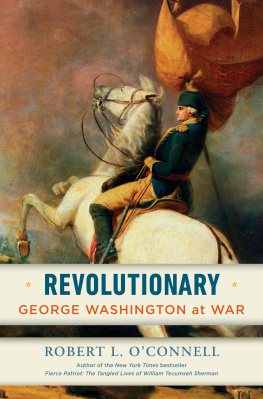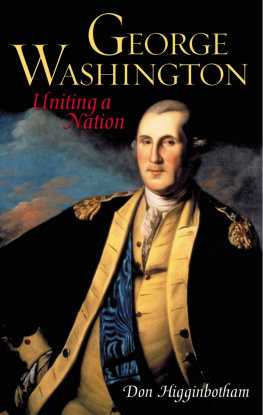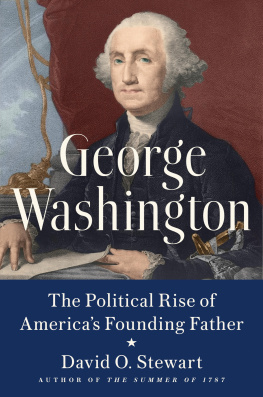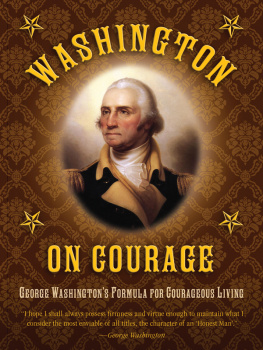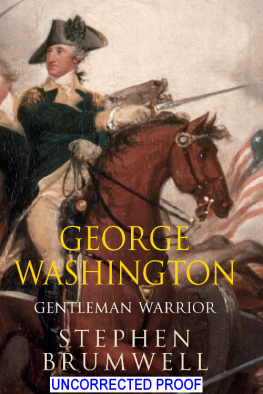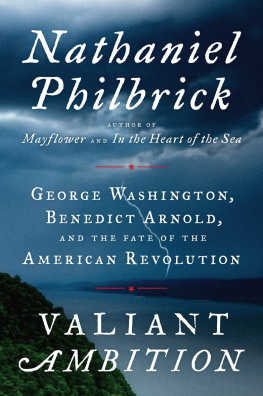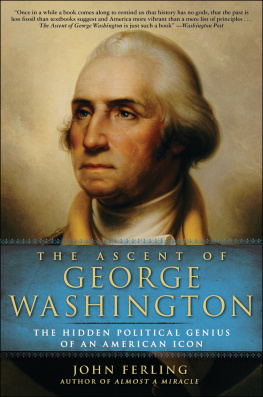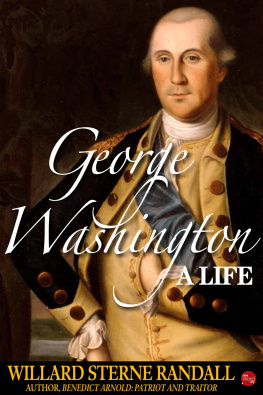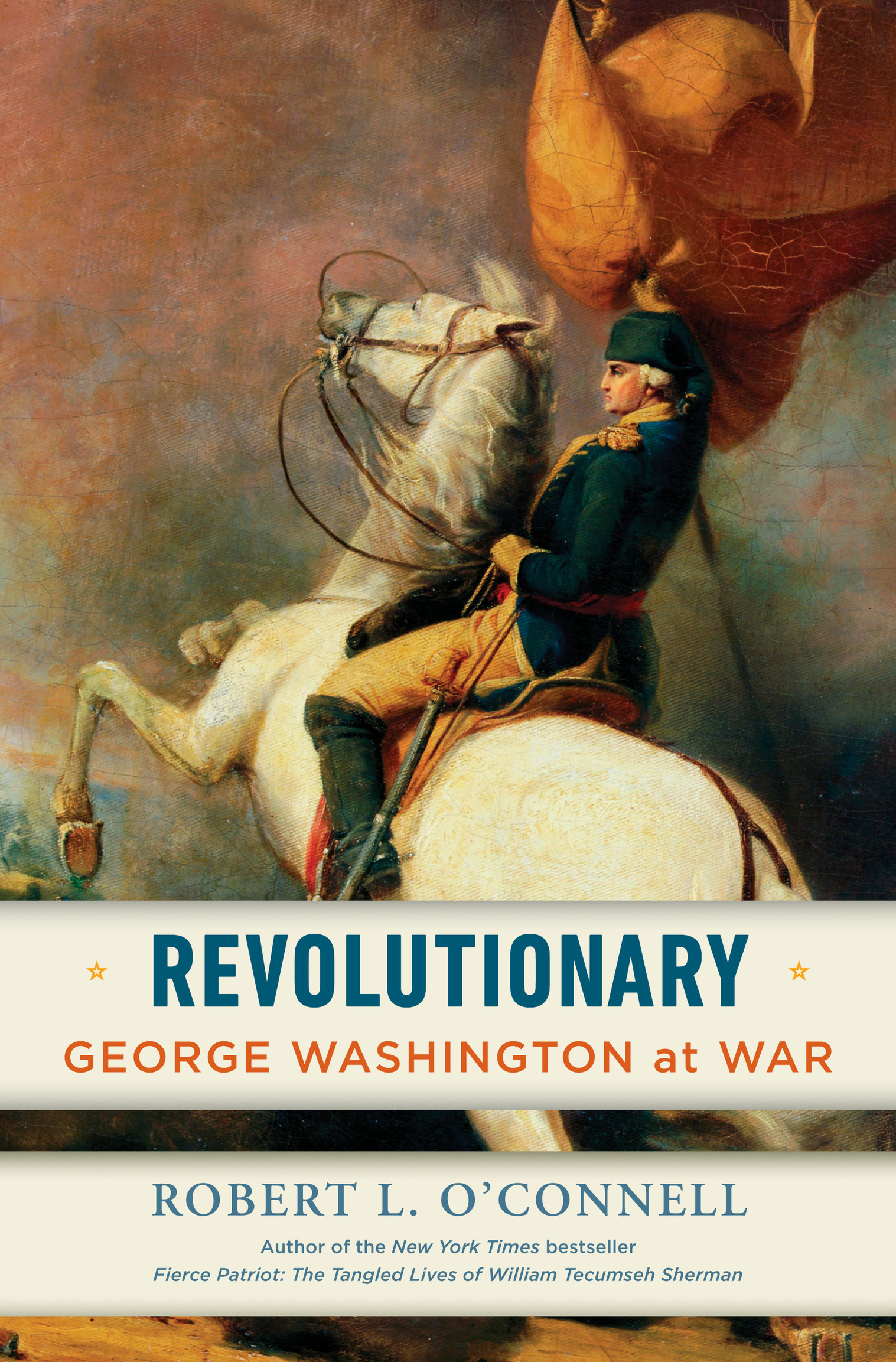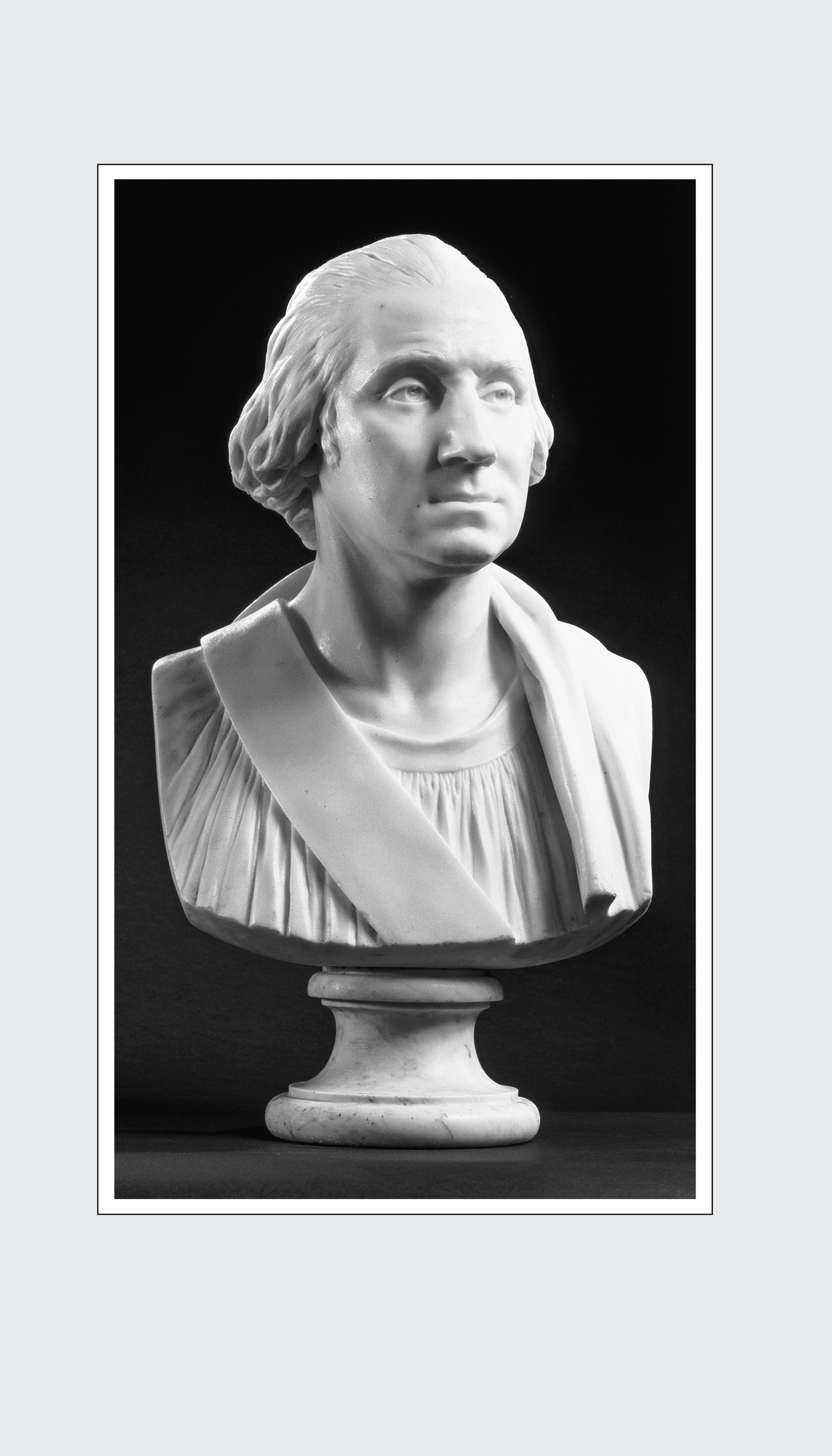Copyright 2019 by Robert L. OConnell
All rights reserved.
Published in the United States by Random House, an imprint and division of Penguin Random House LLC, New York.
R ANDOM H OUSE and the H OUSE colophon are registered trademarks of Penguin Random House LLC.
N AMES: OConnell, Robert L., author. T ITLE: Revolutionary: George Washington at War / Robert L. OConnell. D ESCRIPTION: First edition. | New York : Random House, 2019. | Includes bibliographical references and index. I DENTIFIERS: LCCN 2018013009| ISBN 9780812996999 | ISBN 9780812997002 (ebook) S UBJECTS: LCSH: Washington, George, 17321799Military leadership. | Washington, George, 17321799Psychology. | Washington, George, 17321799Childhood and youth. | GeneralsUnited StatesBiography. | United States. Continental ArmyHistory. | United StatesHistoryRevolution, 17751783. C LASSIFICATION: LCC E312.25 .036 2019 | DDC 973.4/1092 [B] dc23 LC record available at https://lccn.loc.gov/2018013009
All maps courtesy of the United States Military Academy at West Point Department of History
INTRODUCTION
The Generalissimo
He would have hated the concept Generalissimo, and all it implied. It was exactly the image he, and, above all, Congress, didnt want to project. He was simply the commander in chief of a legitimate governmental entitys fighting forces, vested with the anodyne moniker His Excellencya generic term Washington regularly applied to state governors in his own correspondence.
This was, of course, balderdash. Generalissimo would have fit the bill. He was, as everybody knew, the central protagonist in a profound national revolution, at once the ultimate director of all its violent activities, and, through sheer force of will and decency, the chief brake on its potential for excess. At the time of his investment, only Elbridge Gerry was willing to admit Congress was making him generalissimo, yet no other word comes close to the reality of Washingtons position and the magnitude of his task.
This was no ordinary war and he was no ordinary commander. This was a revolution, and the Washington here emerges as cunning and manipulative, a subtle puppeteer among intimates and a master cajoler of those he did not commandbut all in the cause of rectitude and moderation. He draped himself over the Revolution, tamped down its fires, and became its embodiment, until he and it were nearly interchangeable. Perhaps because it all turned out so well and he was carved into Mount Rushmore, the revolutionary contextwith all its melodrama, paranoia, and treacheryhas been de-emphasized. Still, the Revolution was GWs milieu; he was at heart a soldier, as much irregular warrior as regular one. And from this perspective he looks different.
So does the American Revolution, particularly if you consider its timing. Superficially, the revolutionary process can be understood as steadily accelerating from the Stamp Act crisis in 1765 to the Declaration of Independence in 1776, propelled all the while by a series of maladroit British measures to squeeze more revenue out of the colonists, who inevitably rejected them on the grounds of their rights as Englishmen. All true, but different if you look in detail.
While resentment was plainly building, the pattern was for things to settle down in the colonies once each incendiary event burned itself to embers. George Washington was hardly alone in early 1774 thinking the mob had gone too far in tossing the East India Companys tea into Boston Harbor.
Then, in the summer of that same year, events exploded. In roughly the time it took to adjourn the First Continental Congress and assemble the Seconda period of less than a yeara network of revolutionary cadres known simply as the Association effectively eliminated royal authority from all thirteen colonies. Everywhere the process appears to have been similar. First, Association members took over colonial militias and revolutionized them.
By any measure it was a stunning development. There is no ultimate model for revolution, but few have proceeded with such lightning suddenness, so little bloodshed, and then locked itself in place with such success. The Revolution was effected before the war commenced, John Adams explained to journalist Hezekiah Niles more than forty years later. The Revolution was in the minds and hearts of the people.This radical change in the principles, opinions, sentiments, and affections of the people was the real American Revolution. It was an essential observation. The Revolution never could have proceeded at such a pace unless vast numbers across all thirteen colonies were not simply in favor of it, but fired up. What, then, was the source of the flame?
This revolution was driven by ideas, and they raced across the colonies like a firestorm. Fortunately, we know a good deal more about the intellectual origins of the American Revolution than we used to, thanks to the pioneering efforts of historians Bernard Bailyn and Gordon S. Wood a generation ago. Previously, the conceptual framework of revolution was thought to have been built upon the writings of philosophers such as Montesquieu and Locke, along with suitable additions from the ancientsthoughtful and high-toned to the core.
But when Bailyn and later Wood looked into the sources of what the colonists were actually reading, they found something entirely different and a great deal more ironic. The names that kept turning up were not philosophes; they were polemicistsradical Whig critics of the political system in England, most particularly of the fantastically successful regime of Robert Walpole.
This was, of course, the worst case. From another perspective, it can all be seen as the unavoidable price of political stability and economic progress, both of which were undeniable. The radical critique was read and gained some influence, but never enough to make a real difference in the go-along-to-get-along atmosphere of Restoration England.
But not in the fated thirteen colonies. Here the effect combined elements of a time bomb and a poison pill. Separated from the source by three thousand miles of Atlantic Ocean and often hundreds of miles of rough territory, here information carried a surcharge of rumor and exaggeration as it spread. Colonists, only half of them literate, heard what they wanted to hear. These were edgy and emotional people, living in an environment far less socially constrained than Great Britains. Thirty-five years prior, a wave of religious enthusiasms, the Great Awakening, had swept across the colonies; now a new, political tide was building to towering proportions. The message receivedthe bill of attainder against the parliamentary hegemoncame through stripped to its essentials and rendered explosive by its ineluctable bottom line: After they have flooded the place with brother-in-law officials and Anglican priests, taxed us at their discretion, cowed us with their redcoats, and stripped us of all our commerce, they mean to enslave us.

